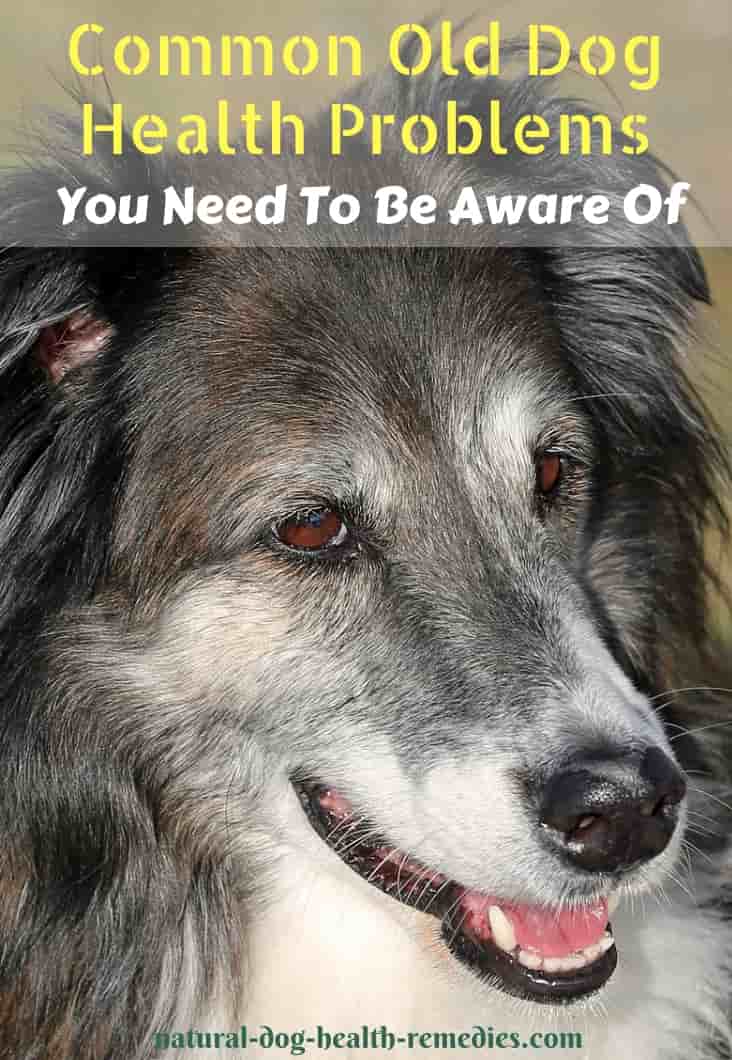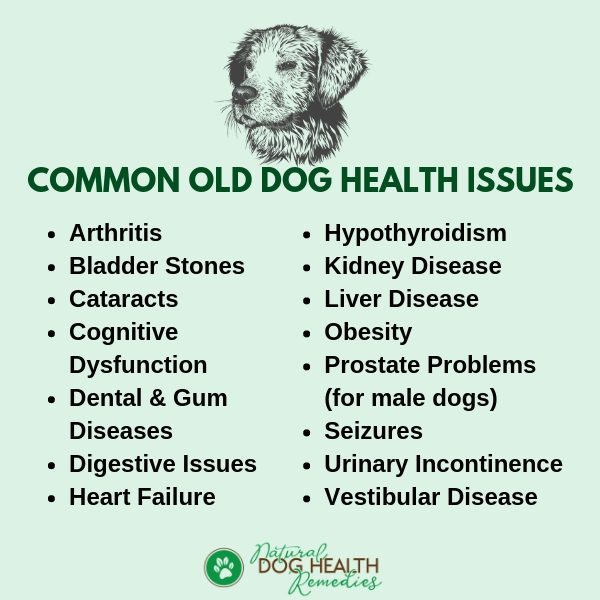Old Dog Health Problems & Symptoms
Overview
As our dogs get older, it is more likely that they develop various health problems. As dog parents, we have to keep a close watch on any changes and symptoms, both physical and behavioral, that our aging dogs may exhibit. Such changes and signs often indicate that our senior dogs are developing some form of health problems.
As a quick index, the more common old dog health problems and the signs of these problems are listed in the following table.
Please also visit these pages for information on:

Old Dog Health Problems and Symptoms
(Click on respective links to see more information)
| Possible Illnesses |
Symptoms |
| Arthritis |
- Walking with a limp
- Afraid to be touched
- Stiffness, especially after rest
- Difficulty in climbing stairs
- Swelling/tenderness in limb or spine
- Lethargy
- Irritability
|
| Bladder Stones |
|
| Cancer |
- Abnormal swellings that persist or continue to grow
- Sores that do not heal
- Weight loss
- Loss of appetite
- Bleeding or discharge from any body opening
- Offensive odor
- Difficulty eating or swallowing
- Hesitation to exercise or loss of stamina
- Persistent lameness or stiffness
- Difficulty breathing, urinating, or defecating
|
| Cataracts |
- Cloudy eyes
- Vision loss - may bump into objects
|
| Cognitive dysfunction |
- Sleeping a lot, especially during daytime
- Loss of appetite
- Lethargy, reluctance to play
- Peeing in inappropriate places in the house
- Staring at the wall or into space
- Restlessness, e.g. pacing, wandering around aimlessly.
- Aggression even towards family members and friends
- Disorientation - may appear lost or confused in familiar place
- Fails to respond to own name or learned commands
|
| Dental and Gum Problems |
- Bad breath
- Swollen or bloody gums
- Difficulty eating or swallowing
- Excessive drooling
- Weight loss
|
| Diabetes |
- Drinking lots of water
- Peeing a lot
- Dull, poor hair coat
- Listlessness
- Increased appetite
- Vomiting
- Weight loss despite a large appetite may also occur
|
| GI problems |
|
| Heart Failure |
- Unproductive coughing, especially during the night or first
thing in the morning
- Difficulty breathing; increased panting and puffing
- General fatigue and lethargy
- Intolerance of exercise
- Appetite and weight loss
- Fainting
- Swollen abdomen due to fluid buildup
- Grey or bluish gums
|
| Hypothyroidism |
- Weight gain (without appetite increase)
- High blood cholesterol
- Lethargy and mental dullness
- Intolerance of exercise
- Intolerance of cold temperatures
- Dry hair
- Excessive shedding/hair loss
- Dry skin - more prone to infections and itchiness
|
| Kidney disease |
- Increased thirst
- Frequent urination with large quantities of pale urine
- Poor appetite
- Weight loss
- Nausea
- Constipation
- Lethargy
- Fatigue
- Bad breath
- Mouth ulcers (in later critical stage)
|
| Liver disease |
- Vomiting
- Appetite loss
- Yellow or pale gums
- Behavioral changes
|
| Obesity |
- Overweight
- Inactivity / Lethargy
- Difficulty walking or getting up
|
| Prostate disease (for male dogs) |
- House soiling
- Bloody urine
- Dribbling urine
|
| Seizures |
- Muscle contractions
- Loss of motor control
- Fainting
- Loss of bladder or bowel control
|
| Urinary Incontinence |
- Loss of bladder control
- Peeing in inappropriate places
|
| Vestibular Disease |
- Irregular eye movements
- Unstable gait
- Head tilting to one side
- Nausea or vomiting (due to dizziness)
|

Resveratrol for Dogs?
You may have heard about resveratrol and its anti-aging effects on people.
How about giving resveratrol to our aging dogs? Will it be effective? Click
here to find out!








